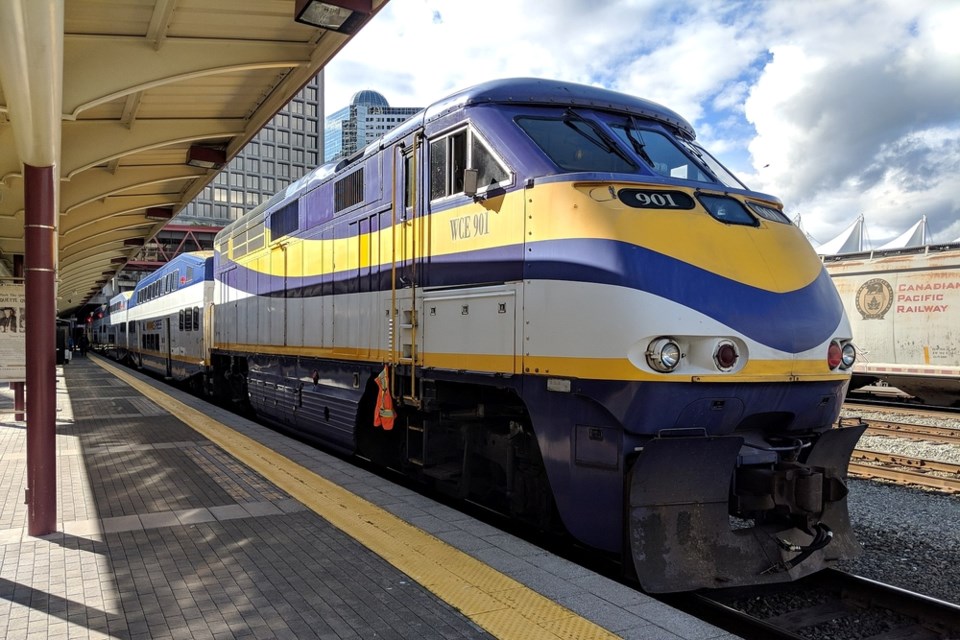Seven West Coast Express locomotives have been slated for a $20.9 million-upgrade to expand their lifespan by 15 years and reduce emissions.
Running the 68 kilometres between Mission and downtown Vancouver and stopping in each of the Tri-Cities, the passenger rail line serves as a vital link between the Fraser Valley and Metro Vancouver, ferrying 2.6 million riders every year.
The upgrade means six of the locomotives will receive refurbished engines, and all seven will receive new head end power units, which heat and light the passenger cars. The locomotives will be refurbished one at a time to prevent disruption in service.
“Our current locomotive engines are reaching the end of their lifespan, and this investment allows us to continue providing this important service for residents of Mission, Maple Ridge-Pitt Meadows and the Tri-Cities for years to come,” said TransLink’s interim CEO Gigi Chen-Kuo.
To cover the costs of the train upgrade, the federal government is investing $10.2 million funnelled through its Public Transit Infrastructure Stream (PTIS). The province, meanwhile, is contributing $ 9.2 million to the project, with TransLink adding an additional $1.5 million.
Federal Minister of Infrastructure and Communities Catherine McKenna added that cutting emissions in the transportation sector “is vital to meeting Canada’s climate goals.”
According to a 2018 accounting by the federal government, transportation was responsible for 25% of all greenhouse gas emissions, making it the second-largest source of emissions after the oil and gas sector.



